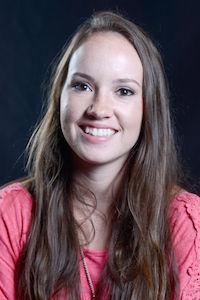The war on women’s reproductive rights and the perceived war on teachers in North Carolina have intersected in Raleigh this month. Matthew Tringali, the local ringleader of a pro-life group called Abolish Human Abortion, began a smear campaign against elementary teacher Shana Broders of Wake Forest because Broders volunteers at a Women’s Choice clinic in Raleigh as an escort (i.e. someone who drives women to abortion clinics if there is not one in their vicinity).
Tringali allegedly has a history of traveling around the country and terrorizing and harassing women and their partners at abortion clinics, then blogging about it on Facebook. In Raleigh, Tringali protests by wearing a camera around his neck to record people while he screams at them and follows them even when they ask him to stop. In 2014, Broders cited Tringali for trespassing at the clinic and a year later he was arrested for the same offense.
These are the events that led to vicious attacks on Broders, who in 2009 was WRAL’s teacher of the week and named a top 10 educator in Wake County, from the AHA via Facebook. In mid-August, a meme with her school photograph next to a photo of her volunteering at the clinic was circulated among parents of children at Broders’ school with the following message:
“Hello fifth graders and families! My name is Mrs. Shana Broders, and I am very excited to have your child in my class and look forward to an amazing year of learning and growth. I love to bake and eat chocolate. I have made many cakes and cupcakes for friends and their children. How did your child spend their summer vacation? I spent mine helping to MURDER babies at ‘A Woman’s Choice’ Abortion clinic in Raleigh! Looking forward to seeing you!”
The campaign against Broders does not stop there — AHA members called Broders’s school saying that she deserves to be fired and have even threatened to show up at the school’s open house.
This cruel activism follows the string of sensational videos about Planned Parenthood which have brought an influx of protesters to Planned Parenthood on South Boylan Avenue, just a few blocks from campus where many students frequent. The protests at this clinic, which does not perform abortions, and along with all of the Planned Parenthood clinics in North Carolina, does not do any type of medical research tissue donations, transforms these protests to a fight not only against a woman’s right to choose, but against poor people receiving medical care. In Raleigh, this protest has even convoluted into a campaign to get a highly awarded and popular public school teacher fired.
It’s no wonder that the enrollment in the College of Education has been steadily declining; teachers are not only underpaid, but are expected to constantly tromp on some transcendent moral high ground. As a future teacher myself, I am hyperaware of the unforgiving world I will enter upon graduation. Like Broders, will I have to face such hate and scrutiny for the opinions and ideas I have while I’m not at work?
I have a theory: Teachers, having been assigned the unofficial role of what I will call “the social matriarch,” are expected to take on the role of the mother outside of the home. In this role, teachers, who are by grand majority women, are expected to adhere to the cultural misogynic idea of what a matriarch must be. This ideal requires a level of submissiveness to embracing motherhood in all aspects of life. In our culture, we have very limited examples of divergent matriarchal power, so nurturing motherhood is expected of females by both men and women because there just aren’t any other models.
Once you compare fundamental reasons why both a woman’s choice and teachers seem to be under so much fire, it’s no surprise that these two issues have intersected here in Raleigh. The reason why abortion is so vehemently attacked is the same reason why women who reject traditional ideals regarding marriage and rearing children are often viewed as offensive by those who choose a traditional path. A woman’s role in society remains to be primarily the mother. This definition of matriarchal power needs to change — female power needs to be redefined outside the realms of motherhood. With a new definition and new culturally accepted avenues for women, a woman’s body will be treated as just that, her body and not just a womb, and a school teacher will be respected for how well she performs her job as an educator and not for where she chooses to volunteer outside of her career.














